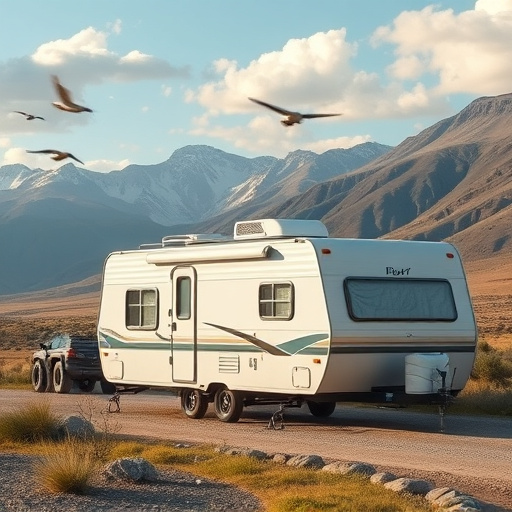Choosing the right RV battery is crucial for off-grid solar power systems. Consider battery type (lead-acid, lithium LFP, lithium ion), capacity (amp hours), weight, size, warranty, and reviews. Top options include Renogy, Battle Born, Trojan, Xantrex, and AGM brands. Weigh pros/cons of lead-acid, lithium, and AGM batteries based on cost, lifespan, weight, and energy density for optimal RV solar power performance.
“Unleash the power of the sun with the best RV batteries tailored for solar energy! This comprehensive guide is your ultimate resource for navigating the world of RV battery options. We delve into the unique requirements of solar-powered RVs, exploring the battle between traditional lead-acid and cutting-edge lithium batteries. Discover key features that set top-tier RV batteries apart. From performance to longevity, we compare five leading models, highlighting their advantages and disadvantages. Empower yourself to make an informed decision for your RV’s solar setup.”
- Understanding RV Battery Requirements for Solar Power
- Types of RV Batteries: Lead-Acid vs Lithium
- Key Features to Consider in RV Solar Batteries
- Top 5 RV Batteries for Solar Power Comparison
- Advantages and Disadvantages of Each Battery Type
- Making an Informed Decision for Your RV Solar Setup
Understanding RV Battery Requirements for Solar Power
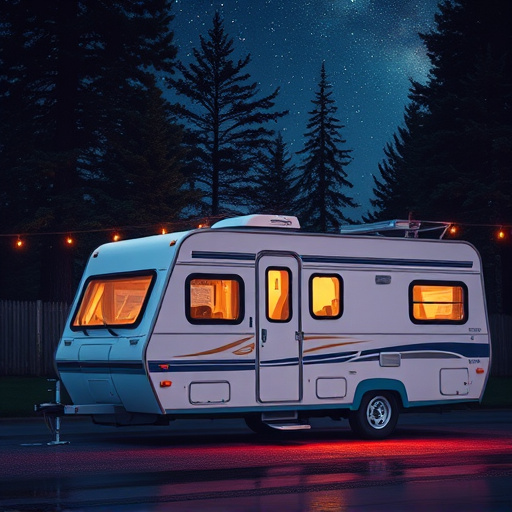
RV batteries play a vital role in off-grid solar power systems, storing energy for use during periods of no sunlight or at night. To effectively power an RV using solar panels, understanding specific battery requirements is crucial. These include high capacity to store ample energy, deep cycle capability to handle frequent discharges and recharges, and robust construction to withstand the rigors of RV life—often involving extreme temperatures and vibrations.
Additionally, choosing the right rv battery type, such as lead-acid or lithium iron phosphate (LFP), is essential based on your power needs, budget, and desired lifespan. Proper maintenance, including regular charging and monitoring, ensures these batteries perform optimally for years, powering lights, water pumps, and other appliances while exploring the open road.
Types of RV Batteries: Lead-Acid vs Lithium
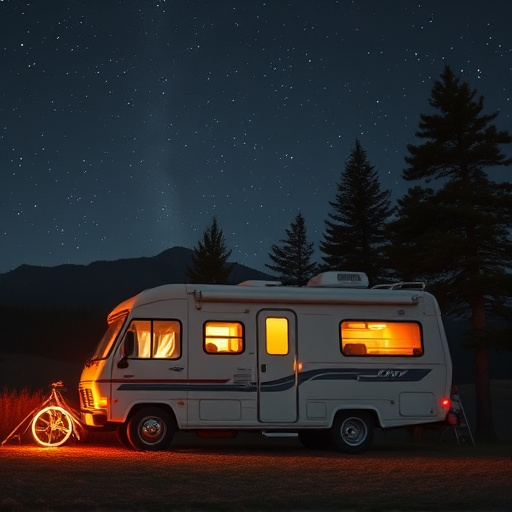
When it comes to powering your RV with solar energy, choosing the right battery is a crucial decision. RV batteries typically fall into two main categories: lead-acid and lithium. Lead-acid batteries have been a traditional choice due to their affordability and availability. They are reliable but heavier and require more maintenance as they produce hydrogen gas during charging, necessitating ventilation. On the other hand, lithium batteries offer advanced technology with significant advantages. They are lightweight, powerful, and have a longer lifespan, making them an excellent investment for off-grid RV living. Lithium batteries also charge faster and can handle frequent cycling, ensuring your solar power system remains efficient over time.
Key Features to Consider in RV Solar Batteries
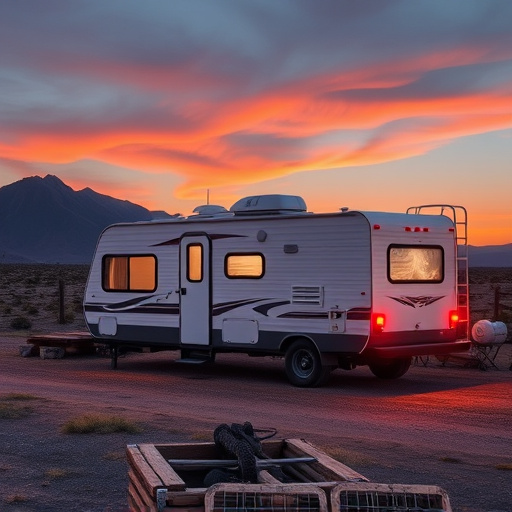
When choosing an RV solar battery, several key features should be top of mind. First, deep cycle capacity is crucial for storing energy from your solar panels during periods of low or no sunlight. Look for batteries with a high amp hour (Ah) rating to ensure they can handle frequent deep discharge cycles without damaging their performance.
Second, weight and size are significant considerations for RV owners. Given the limited space available, lightweight yet powerful batteries that maximize storage capacity per pound are ideal. Additionally, warranty coverage offers peace of mind—longer warranties typically indicate higher quality and manufacturer confidence in their product. Always check ratings and reviews to ensure the battery is suitable for solar power applications and aligns with your RV’s electrical demands.
Top 5 RV Batteries for Solar Power Comparison
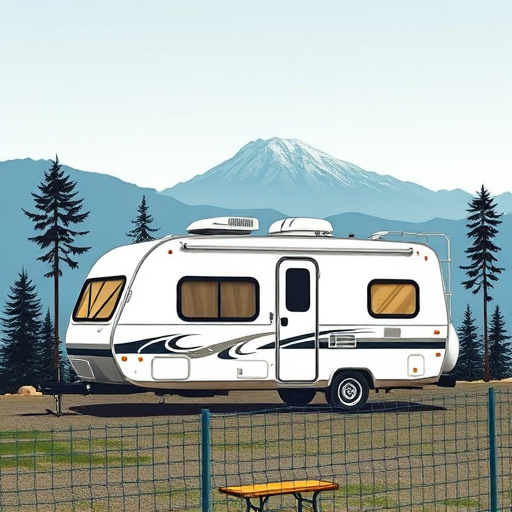
When it comes to harnessing solar power in your recreational vehicle (RV), choosing the right RV battery is paramount. The top 5 batteries on our list offer superior performance, durability, and efficiency for off-grid living.
1. Renogy Lithium Iron Phosphate (LFP) Battery: Renogy’s LFP batteries are renowned for their long lifespan, safety features, and high discharge rates. They’re ideal for solar energy systems due to their consistent performance in various climates.
2. Trojan T105 Deep Cycle Lead-Acid Battery: A reliable option known for its deep cycle capabilities, the Trojan T105 is cost-effective and suitable for both part-time and full-time RV users needing a robust and affordable backup power source.
3. Xantrex Freedom XC Lithium Ion Battery: Offering lightweight design and superior energy density, Xantrex’s lithium ion battery provides quick charging times and long-lasting performance, making it perfect for those seeking efficiency and minimal space consumption.
4. Battle Born 100Ah Lithium Ferro Phosphate (LFP) Battery: Battle Born’s LFP batteries are known for their high capacity, low maintenance, and silent operation. They’re a popular choice among RV owners who prioritize clean energy and reliable performance.
5. Optima RedTop Deep Cycle Lead-Acid Battery: The Optima RedTop is a deep cycle lead-acid battery designed to withstand frequent cycles, making it suitable for various RV applications requiring consistent power delivery.
Advantages and Disadvantages of Each Battery Type
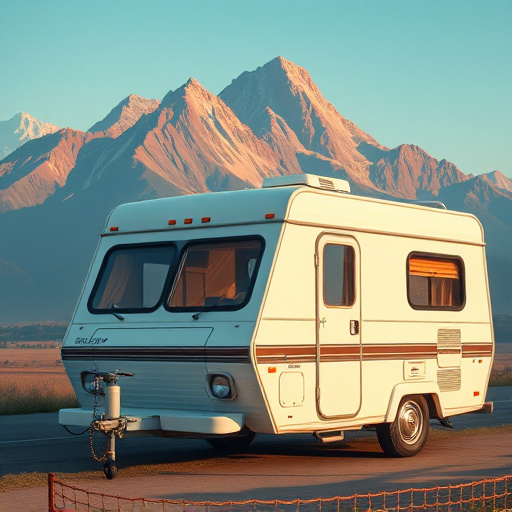
When it comes to RV batteries for solar power, there are primarily three types: lead-acid, lithium, and AGM (Absorbent Glass Mat). Each has its unique advantages and disadvantages. Lead-acid batteries are cost-effective and reliable, making them a popular choice for many RV owners. They are heavy, require regular maintenance, and have shorter lifespans compared to other options. However, they offer good deep cycle performance and are readily available.
Lithium batteries, on the other hand, are lightweight, powerful, and efficient, providing longer cycles and faster charging times. They are more expensive but last much longer. AGM batteries are known for their durability, as the absorbent glass mat inside reduces vibration and spillage risks. They are versatile, suitable for various applications, and require minimal maintenance. Yet, they tend to have lower energy density and higher upfront costs compared to lithium batteries.
Making an Informed Decision for Your RV Solar Setup
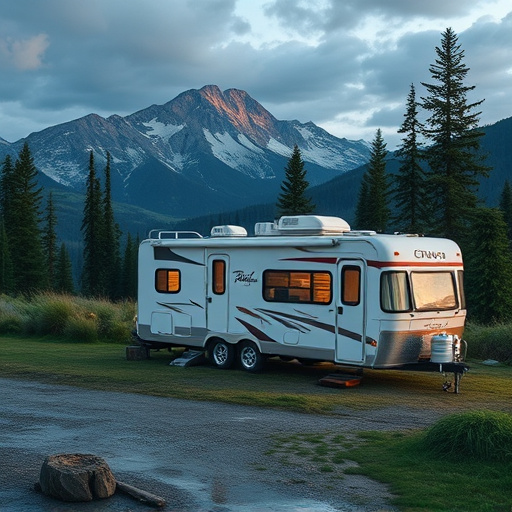
When setting up a solar power system in your RV, making an informed decision for the right RV battery is crucial. There are several key factors to consider beyond mere capacity, such as battery chemistry (lithium-ion versus lead-acid), weight and size constraints specific to RVs, and depth of discharge compatibility with your solar panels and charge controller.
Understanding these aspects will help you choose a battery that aligns perfectly with your energy needs and RV configuration. By balancing performance, longevity, and cost, you can ensure a reliable and efficient power source for your off-grid adventures, allowing you to enjoy the freedom and independence of solar-powered RV living.
When choosing the best RV batteries for solar power, understanding your specific needs and comparing key features is essential. Both lead-acid and lithium RV batteries have their advantages and disadvantages. In this comparison, we’ve highlighted top choices, helping you make an informed decision for your RV’s solar setup. Opting for high-quality RV batteries will ensure reliable performance, extended lifespan, and optimal energy storage for your off-grid adventures.
